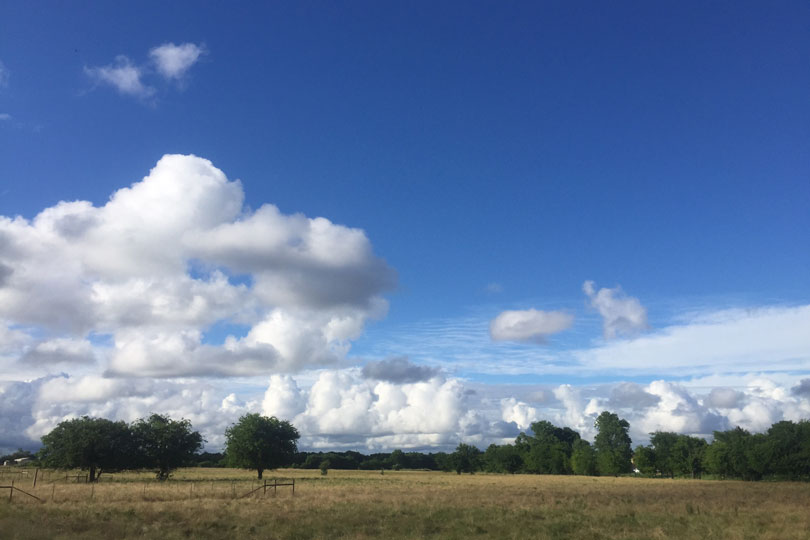By Justin Walker
Communications Specialist
As farmers and ranchers continue to check their livestock, crops and equipment, one dermatologist stresses they should also check their skin.
Dr. Ashley Sturgeon, a dermatologist and assistant professor of dermatology at Texas Tech University Health Sciences Center, said farmers and ranchers should check their skin monthly for signs of skin cancer.
“Skin checks are really important, because there are things that someone might find that they won’t show a dermatologist. So, it’s really important to find things before they become problems,” Sturgeon said. “If you catch things early, it’s most often an easy fix.”
Early detection is crucial in skin cancers. It could prevent serious problems from arising, according to Sturgeon.
“You hear about melanoma being deadly and horrible and it certainly is. But if you catch it early, a simple procedure could cure it,” she said. “Once a month, check over your skin to make sure nothing is growing or changing and report any unusual behavior to a dermatologist immediately.”
Sturgeon said the areas above the waist are of most concern when it comes to sun exposure on farmers and ranchers.
“The most common areas that I see skin cancers, especially on our farmers, are on the tops of the hands and arms,” Sturgeon said. “The nose gets a lot of sun, so even if you wear your sunscreen, that sunscreen gets rubbed off.”
To combat that, sunscreen should be applied and reapplied when working outside, Sturgeon said.
The scalp and back of the neck are also areas of concern, especially for those who do not wear caps or hats. The tops of ears can also be impacted.
“Right on the tops of the ears, you’ll just get something that’s really dry and scaly and that can be a little precancerous lesion,” she said. “If we catch those early, we just freeze them and it’s no big deal. They don’t have to become a big skin cancer that requires lots of surgery.”
The eyelids should be monitored, as well. Sturgeon suggests sunglasses as protection.
Sturgeon convinced her husband, Jason, to start practicing better skin care techniques in the field. Jason, who is a cotton farmer, started wearing long-sleeved shirts to protect his arms while out in the field.
“I got my husband to start wearing long-sleeved shirts a few years ago because I told him if you grow a skin cancer and have to get it sewn up, you can’t lift anything over 15 pounds for two weeks,” she said. “Now it’s his mission in life to make sure that he never grows anything that has to be sewn up on his arms. And he’s found the long-sleeved shirts to be cooler.”
Sturgeon recommends a daily application of sunscreen with a SPF rating of 30 or greater. Sunscreens should also be reapplied every two hours.
“What my husband complains about the most is he doesn’t want to put on a cream after his hands are greasy and dirty,” Sturgeon said. “So the sprays are really nice, and they’re also kind of cooling on a really hot day.”
In addition to the monthly skin checks, Sturgeon would also like to see farmers and ranchers have a yearly, full-body skin examination.
“It’s so important,” she said. “If I catch something early, it can be an easy fix. But if you wait until it becomes noticeable to you, that’s when it can be a problem. And skin cancer can go from not a big deal to a really big deal in just a matter of months. So, get your skin checked and check yourself as often as you can.”


I Really appreciate you for informing everyone! If U could give example pictures of what to look out for would really help people !! THANK YOU for CARING!!